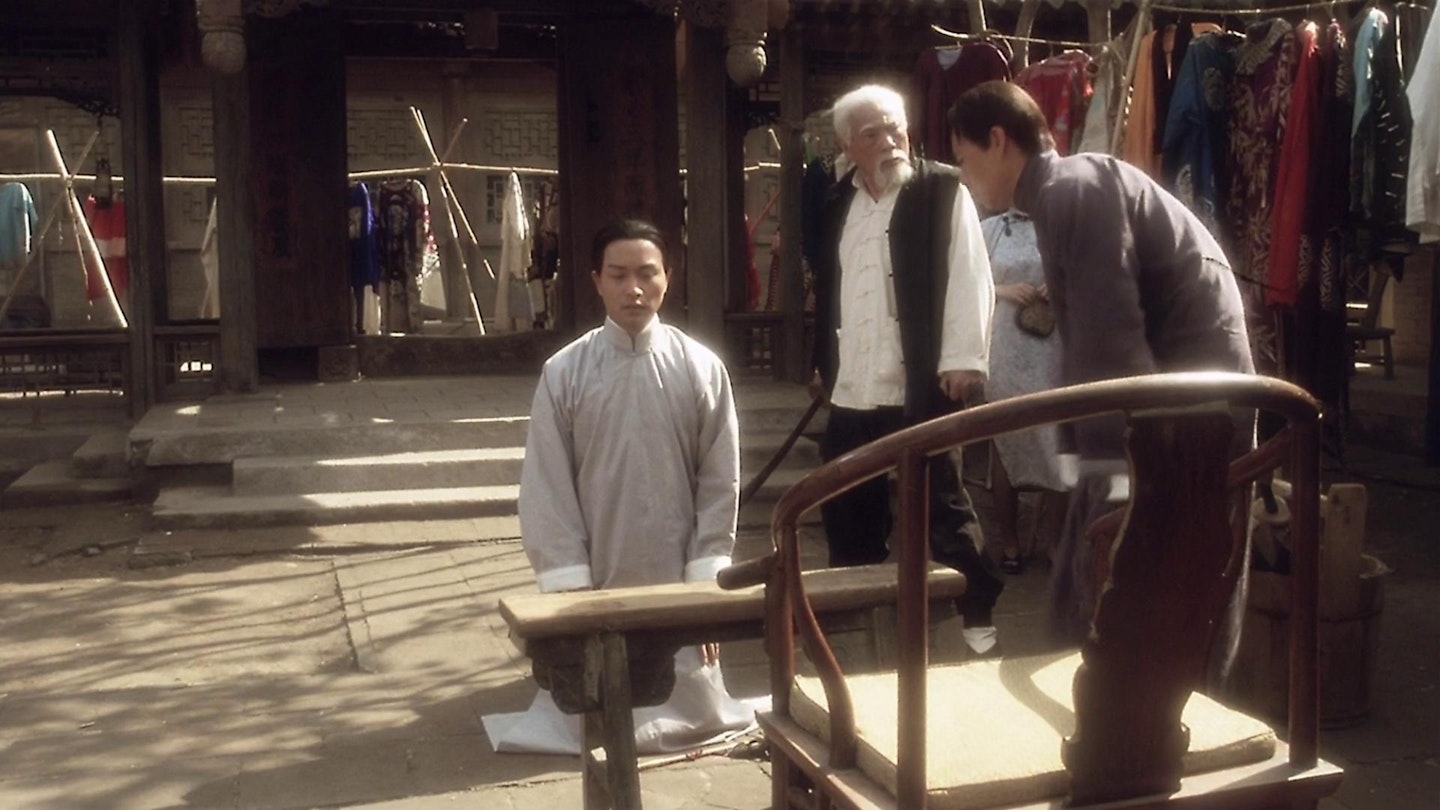Banned not once but twice in its native China, and now only showing there with the very begrudging assent of the government, Chen Kaige's fifth film, and his first since the critically acclaimed Life On A String in 1990, last year transcended bureacratic red tape to jointly win (with The Piano) the top prize at Cannes. And, having successfully changed its nation of origin to Hong Kong to avoid the restrictions imposed by Chinese statehood, is now not only eligible for, but also one of the most hotly-tipped contenders to win the Best Foreign Film Oscar come March.
The epic sweep of Kaige's painterly eye takes in a sumptuously detailed panorama of Chinese history through the lives of two men, inextricably linked from 1925, a time of warlords' rule and the heyday of the Peking Opera, through 1937 and the Japanese invasion, to the inexorable rise of Communism and the Cultural Revolution. Cheng Dieyi and Duan Xialou, beautifully portrayed from youth to age by Cheung and Fengyi respectively, are the central characters, set apart from the rest by their utter dedication to the Opera, a bond which weathers throughout their uncompromising childhood apprenticeship and eventual stardom, and the unrequited love Dieyi has for Xialou mirrored, with painful foreboding of the consequences to come, by their nightly performance in a traditional opera, with Xialou as the King and Dieyi as his self-sacrificing Concubine. When Xialou marries his real-life concubine (Gong Li, mesmerising as ever), the stage is truly set for that lingering, final curtain.
More than anything, Kaige uses the relationships both to explore themes most obviously homosexuality and to reflect and reveal the greater turmoil taking place in Chinese politics and history, subjects still not readily recognised by his own government and culture. If Kaige's film is also about the triumph of the individual in a society given to the masses, then he too, as director of this difficult and politically dangerous film, has surely prevailed with what is ultimately a fascinating portrait of China, both beguiling and tragic to behold.
